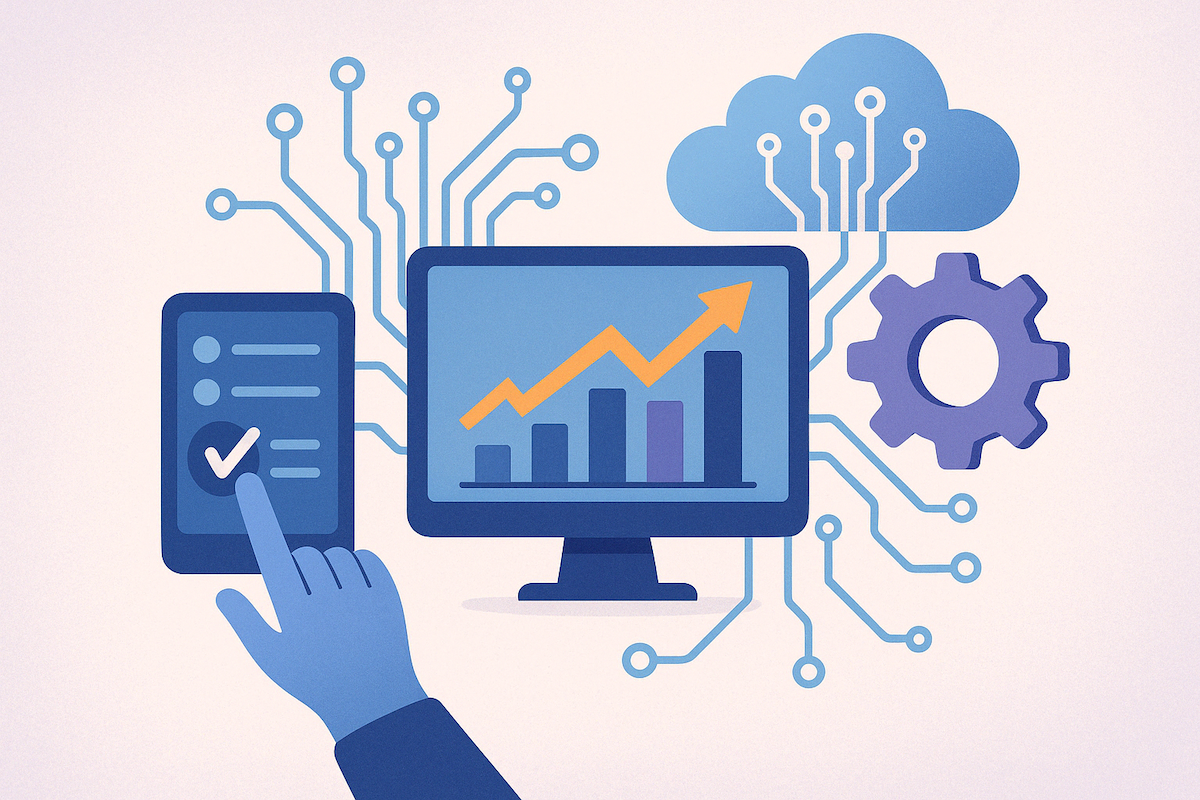
Table of Contents
Accounting Transformation: Are We Asking the Right Questions?
The buzz around “digital transformation” in finance isn’t new, but the conversation has definitely matured, moving beyond just technology implementation to more strategic considerations. Today’s forward-thinking finance leaders are asking much more sophisticated questions than simply “Should we go paperless?” or “Which tasks can we automate?” Now, the focus is shifting towards how AI can genuinely enhance financial forecasting, what data governance structures support both compliance and analytics, and how to build a cohesive technology ecosystem rather than a pile of disconnected solutions.
It’s a move from basic efficiency plays to pursuing genuine strategic advantage through technology. However, my research digging into enterprise financial system implementations reveals a common pattern: organizations often get stuck, missing out on strategic opportunities because they focus too narrowly on just automating existing manual processes. Don’t get me wrong, those initial efficiency gains from basic automation are valuable, often essential. But true, lasting transformation requires a broader vision (one that integrates systems intelligently and leverages the power of advanced analytics.
The Three Horizons: A Framework for Transformation
Thinking about this evolution, it’s helpful to frame digital transformation in accounting as progressing through three distinct, yet overlapping, horizons. Each builds upon the previous one, unlocking progressively greater strategic value.
Horizon 1: Foundational Automation (The Efficiency Engine)
This is typically where the journey begins for most accounting departments. The primary goal? Automate high-volume, repetitive, manual tasks to free up time and reduce errors. Common examples include Accounts Payable (AP) Automation using OCR and ML tools, Expense Management with tools like SAP Concur or Expensify, and Basic Reporting Automation using ERP or dedicated software.
The benefits here are tangible and often quick to realize. Organizations frequently report significant reductions in processing time for tasks like invoice handling at this stage. It’s about doing the same things faster and with fewer errors. But while valuable, this horizon alone doesn’t fundamentally change the role of the finance function.
Horizon 2: Intelligent Integration (Connecting the Dots)
The second horizon is where things get really interesting. It’s about breaking down data silos and enabling information to flow effectively between previously disconnected systems. This involves connecting the ERP system with CRM, HRIS, supply chain management (SCM), and other operational platforms. This enables Real-Time(ish) Financial Dashboards, Cross-Functional Reporting blending financial data with operational data, Automated Reconciliations between systems, and Exception-Based Reviews where systems flag only unusual items requiring human investigation.
This horizon demands more sophisticated architectural thinking. It’s not just about plugging systems together; it’s about designing intentional information flows that serve both operational efficiency and analytical requirements, all while ensuring data integrity and governance are maintained across the entire ecosystem. APIs, middleware, and robust data integration platforms are key technologies here.
Horizon 3: Predictive & Cognitive Finance (The Strategic Advisor)
The most advanced horizon leverages cutting-edge technologies like machine learning (ML), advanced analytics, and natural language processing (NLP) to transform accounting from a primarily backward-looking, historical reporting function into a forward-looking, strategic advisor to the business. Capabilities emerging here include AI-Powered Forecasting for more accurate cash flow or demand predictions, Anomaly Detection where AI continuously monitors transactions for fraud or compliance risks, Natural Language Interfaces allowing users to ask financial questions in plain language, and Predictive Planning Models using AI to model the financial impact of strategic scenarios.
A fascinating example I’ve analyzed involves predictive revenue recognition systems. By using NLP to automatically read and interpret complex sales contracts, these systems can forecast complex revenue patterns with remarkable accuracy, demonstrating how Horizon 3 capabilities can fundamentally change core financial management processes.
Don’t Forget the People! The Human Element is Central
It’s tempting to get lost in the technology, but successful transformation across all three horizons hinges on the human element. The goal should always be to augment human capabilities, not simply replace people with machines.
As automated systems handle more routine, transactional work (Horizon 1 & 2), accounting professionals have the opportunity) and the need (to shift their focus towards higher-value activities: managing complex exceptions, performing deep strategic analysis, interpreting data to provide business insights, and acting as true business partners to other departments. The future accounting department won’t just need accountants; it will need professionals skilled in data analysis, technology integration, and strategic thinking) a hybrid skillset that’s increasingly valuable in today’s market.
Charting Your Course: A Roadmap for Transformation
Embarking on this journey requires careful planning. Based on observing successful (and sometimes less successful) finance transformation initiatives, these principles are key:
- Process First, Tech Second: Deeply understand and optimize your existing financial processes before you throw technology at them. Automation won’t fix a fundamentally broken process.
- Think Long-Term, Act Incrementally: Have a clear vision for where you want to end up (Horizon 3 capabilities?), but ensure your foundational (Horizon 1 & 2) technology choices and architectural decisions support that long-term goal. Don’t paint yourself into a corner.
- Prioritize Data Governance: Clean, consistent, well-structured data is the absolute bedrock for any advanced analytics or AI initiative. Invest in data quality and governance early and often, a topic I’ve explored regarding its growing importance in finance. Garbage in, garbage out still applies!
- Cultivate Hybrid Talent: Invest in training your existing team and/or hire new talent with blended finance, technology, and data skills. Encourage cross-functional understanding.
- Measure Real Business Outcomes: Define success metrics tied to tangible business results (e.g., improved forecast accuracy, reduced compliance risk, faster decision cycles), not just activity metrics (e.g., invoices processed).
Organizations that successfully navigate these horizons don’t just make their finance function more efficient; they transform it into a strategic powerhouse. It’s a journey that requires commitment, but the potential competitive advantages are immense.
Where is your organization on this transformation journey? What hurdles are you facing? Let’s discuss the realities of digital transformation in finance over on LinkedIn.